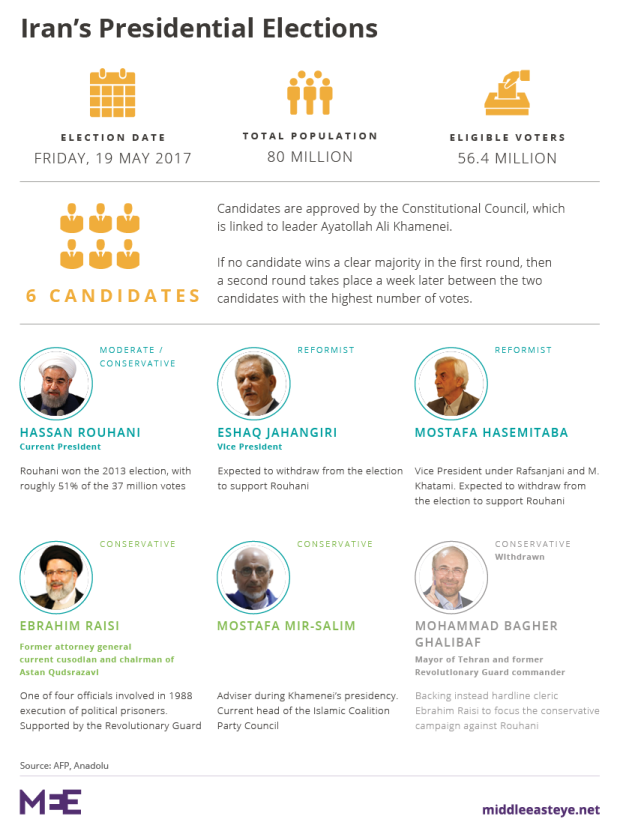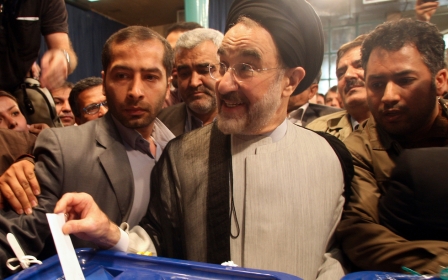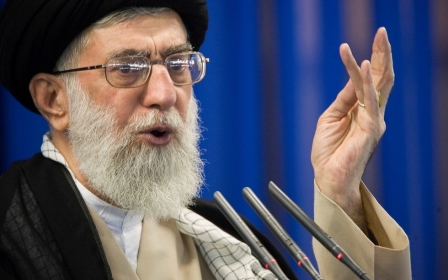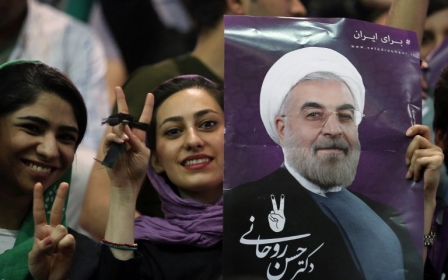Tehran mayor throws weight behind hardliner in Iran election
Tehran mayor Mohammad Baqer Qalibaf quit the Iranian presidential race on Monday, backing instead hardline cleric Ebrahim Raisi in Friday's vote.
Qalibaf, a former Revolutionary Guards commander and police chief, was one of the main challengers to the current president, Hassan Rouhani, who is seeking a second term.
In the last election four years ago, Qalibaf finished second but with just 16.5 percent of the vote. Rouhani, who pledged to reduce Iran's international isolation and grant more freedoms at home, averted a second round by winning just over 50 percent.
This time around, establishment conservative hardliners who want to unseat Rouhani are mainly placing their trust in Ebrahim Raisi, a jurist and Shia cleric who studied at the feet of Supreme Leader Ayatollah Ali Khamenei.
They were not happy that the maverick Tehran mayor was standing again and thereby raising the risk of splitting the anti-Rouhani vote.
"I should take an important decision to keep the unity of revolutionary forces," Qalibaf said in a statement published in state media. "I ask all my supporters around the country to use all their capacity to help my brother, Mr Ebrahim Raisi, win the election."
Raisi and Qalibaf were following the same campaign tactics, criticising Rouhani's economic record and his policy of detente with the West.
Both presidential hopefuls jumped on the Islamic Republic's unemployment rate, which rose to 12.4 percent last year, up 1.4 percent from the previous year.
Raisi and Qalibaf promised to create five to six million jobs in their first term if elected and to triple the monthly cash handouts to Iran's poor, but drew criticism for not explaining how they would fund such programmes.
Rouhani told supporters on Monday he needed a stronger mandate to liberalise Iranian society.
Meanwhile, Iranian opposition figure Mehdi Karroubi, a 80-year-old who has been under house arrest since 2011, has said he would back Rouhani in the election.
Karroubi and fellow reformist Mir-Hossein Mousavi ran for election in June 2009 and became figureheads for Iranians who staged mass protests after the vote they believed was rigged to bring back hardline president Mahmoud Ahmadinejad.
"My father believes in reform through the ballot box," Karroubi's son, Mohammad Taghi Karroubi, told the Reuters news agency.
"He believes people should take part in elections to fight against those who want to turn the Islamic Republic into an Islamic state."
Karroubi, Mousavi and Mousavi's wife Zahra Rahnavard were confined to their homes in February 2011 after the opposition leaders called supporters to rally in solidarity with pro-democracy uprisings in Arab countries.
Middle East Eye propose une couverture et une analyse indépendantes et incomparables du Moyen-Orient, de l’Afrique du Nord et d’autres régions du monde. Pour en savoir plus sur la reprise de ce contenu et les frais qui s’appliquent, veuillez remplir ce formulaire [en anglais]. Pour en savoir plus sur MEE, cliquez ici [en anglais].





